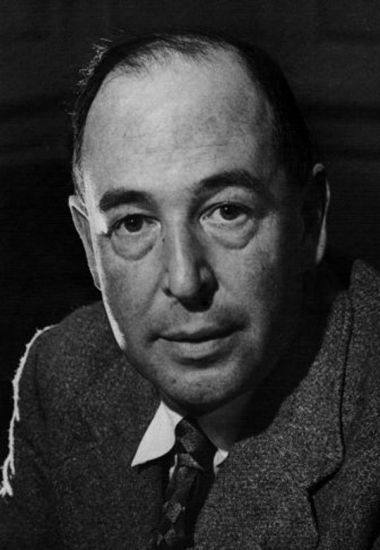Was CS Lewis really Secret Agent Lewis?

A quiet Oxford don taking on SMERSH dressed in an immaculate dinner jacket and armed with nothing more than a nice line in dry wit and an exploding pencil-sharpener? A top theologian and creator of a beloved series of children's books a secret agent? Yes: the name's Lewis – CS Lewis.
The world of Lewis studies has been shaken and stirred by a discovery made by Lewis scholar Harry Lee Poe and told in a Christianity Today article headed "CS Lewis was a Secret Government Agent".
It has to be said that the find, fascinating as it is, doesn't quite justify the headline if readers expect to hear that their hero possessed unexpected skills with Walther PPKs and lengths of cheesewire.
It relates to a little-known episode of Second World War history in which, to deny the Germans the use of the island and to use it as a base for naval and air operations, Britain invaded Iceland. It was a peaceful occupation with the consent of the inhabitants, and one of the ways of keeping them onside was through a charm offensive.
As part of this, programmes were made by Britain's Joint Broadcasting Committee, an arm of MI6 that tasked with broadcasting propaganda to people in occupied enemy territory during World War II. It was the JBC that recruited Lewis, who was soon to rise to fame through a series of BBC radio broadcasts, to make a programme for Icelanders.
Two 78 rpm records were made, each with two parts of the four-part broadcast. Poe discovered one record for sale online and found it was completely new to the Lewis corpus – a significant scholarly coup.
The broadcast was entitled The Norse Spirit in English Literature. According to Poe, he praises the Icelandic tongue as "the most poetic on earth" and credits Norse mythology with awakening his own imaginative life. He says that the English and the Norse "share a spirit of independence" which is different from what's found in the rest of Europe; it's "based on choice rooted in worthy values – a chief who deserves loyalty", as Poe paraphrases.
Lewis was silent about his involvement with the JBC – and he didn't write about Norse mythology later, either, leading Poe to speculate that it might have been just propaganda.
While it's wrong to regard Lewis as a "spy" or to describe him as an "intelligence agent" in anything other than the broadest and loosest sense – at least as far as we know – the discovery does add something to our knowledge of this fascinating man. It also puts him into his historical context.
In the 1930s, Oxford and Cambridge (known together as 'Oxbridge' in the UK) dominated the University scene in a way which isn't as true today. They provided Britain with her politicians, churchmen, scholars and lawyers. They attracted the best and brightest academically, but also socially; they formed the next generation of Britain's ruling class. As such they were a happy hunting ground for the recruiters of spies for both sides.
Russians targeted sympathetic left-wingers; Britain's secret services sought tough, clever patriots. Dons were used as talent-spotters, who would suggest in the vaguest terms to a likely prospect that they might be interested in a chat with someone about their future options; "No need to mention it to anyone, old boy; under the rose, you know."
The best-known of the traitors were from Cambridge – Philby, Maclean, Burgess and Blunt. But in Oxford Arthur Wynn was recruited by the Soviets and recruited spies for the KGB.
The traitors, of course, were the exception. Most served loyally and faithfully, if not always very discreetly: David Cornwell was recruited at Lincoln College, Oxford and after a few years service became John Le Carré, writing about the service with a unique if controversial insight. Oxbridge has provided almost all of the heads of MI6.
British intelligence was aware of the quality of Oxbridge's intellectuals – and Lewis had been a serving soldier, enlisting in 1917 and being wounded during the Battle of Arras. There could be no doubts about his patriotism or his capability.
It's perhaps over-egging things to describe him as a "secret government agent". He would have seen his Iceland broadcast as simply part of his duty, as he saw the radio talks on "What Christians Believe" in August 1941, and very like what he did in his teaching work at Oxford. Whether he would have been comfortable with a wider role in British intelligence – as a talent-spotter like some of his fellow dons, for instance – we don't know; and MI6 isn't saying.
Follow @RevMarkWoods on Twitter.











